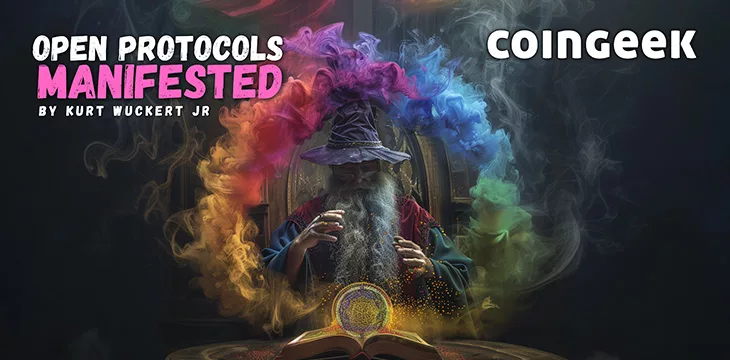|
Getting your Trinity Audio player ready...
|
The BSV ecosystem is undergoing a significant transformation. Last week, Twetch announced they are winding down.
GM
Today is the day. We are officially winding down Twetch.💔 It’s been a fun few years, and we can’t say thank you enough to all our customers who believed in us.
Your BSV & assets are on-chain. You can import your seed into Yours Wallet (@yoursxbt).https://t.co/4ykVIc2DFc
— Twetch (@twetchapp) June 5, 2024
Their announcement was a lucid and fair look at their own work from the perspective of a post-mortem by the founders. They did a few things really well and also made some missteps, just like many startups do. Possibly, the biggest issue that plagued Twetch was that which plagued many startups: timing and external circumstances. In this case, the drama around BSV was not an insignificant ingredient in Twetch’s failing to achieve global domination, but they also struggled due to some fundamental decisions about the use of data in their applications.
All of this comes on the coattails of some other high profile closings. RelayX is no more, and the RUN Protocol has been abandoned for over a year, both of which were also widely used tools in the space.
Announcing @relayxio has begun steps to shut down in near future (30-90 days). The ability to login with password & recover seed phrase will be up indefinitely longer for regard to its users
As @relayxio approaches 5 years old it is time for a change in leadership in BSV
🙏
— Jack Liu 🏦 (@liujackc) February 25, 2024
As an early adopter and passionate user of Twetch, RelayX and RUN tokens, I’m sad to see them all go. However, this shift is paving the way for new beginnings under the banner of BitcoinSchema.org, 1SatOrdinals.com and other open protocols. This evolution kicks off a broader move toward greater decentralization and open access to data, a critical step in realizing the true potential of blockchain technology.
A few of us have also been saying this manifestation was coming for a long time!
Open protocols on #BitCoin will change the game forever. This is how we defeat the machine. 👇https://t.co/9Wv5aqn3CM#web3 #opensocial $BSV @BitChatNitro @BlockPost_Net @BitcoinSchema
— Luke Rohenaz (@wildsatchmo) January 15, 2023
The vision behind JungleBus
The BSV blockchain offers a monolithic, global database, and about two years ago, Luke Rohenaz and I conceptualized the technology necessary to serve that data in useful, lightweight structures to app developers. Our goal was to make data accessible across platforms beyond walled gardens, enhancing its utility for everyone. The result of this brainstorming is JungleBus, now available at Junglebus.gorillapool.io.
JungleBus is a secure and reliable API service that delivers Bitcoin data without requiring users to run a full node. Businesses can subscribe to the data they need and nothing that they don’t need, ensuring efficient and lightweight data management. This innovation supports the decentralization ethos, freeing data from centralized control and making it more accessible and useful.
Congratulations are due to Luke for his vision and leadership in this project and its predecessors. I take pride in contributing to the implementation and hosting of the necessary infrastructure for JungleBus. Today, our investment and vision are paying off as more businesses and applications migrate to the future we have been building for the past two years, but Luke has been working on this vision for at least the last five years through projects like BitcoinSchema.org and its tools like Magic Attribute Protocol (or “MAP”), and he was instrumental in the creation of 1Sat Ordinals and the other open, lightweight protocols, systems and indexers that seem poised to survive the internal scaling war inside of BSV.
The power of open protocols
With open protocols like B:// and BMAP, we are witnessing a new era where data ownership and utility transcend the limitations of traditional, centralized systems. These protocols enable seamless interactions across platforms, fostering an interconnected ecosystem where data is genuinely free and user-controlled.
Open protocols are crucial because they provide a standardized way to publish and access data on the blockchain. For instance, B:// allows for the embedding of any file type in a 0-satoshi output, ensuring that the data remains unspendable, permanent, and public on the ledger. Similarly, BMAP leverages key-value pairs in Bitcoin’s OP_RETURN fields, creating a flexible and resilient system for data management and interaction.
And guess what? All of your Twetches are saved in MAP data, so we just need someone to spin up a client that uses Twetch keys to access, control and interact with Twetch data in a new, more open manner.
All of your twetches and twonks are on chain.
With JungleBus, anyone can build an interface using @BitcoinSchema to make sure they all remain usable while growing in interoperability. https://t.co/sxsCaJMvls pic.twitter.com/bKtvsNeb7y
— GorillaPool (@MineLikeAnApe) June 6, 2024
A growing ecosystem
The rise of platforms coalescing under BitcoinSchema.org and 1SatOrdinals.com shows a move toward greater interoperability and data freedom. Yours Wallet, Haste Arcade, GorillaPool, MyBanka wallet, Firesat, AlphaDapp, and sCrypt.io are among the many projects aligning with these open standards, showcasing the growing momentum and adoption of this decentralized vision.
These projects demonstrate the diverse applications of open protocols, and we believe that hold-outs will come this direction in order to be interoperable with the center of the network over time. From financial services and gaming to data management and development tools, the ecosystem is expanding in ways that highlight the versatility and robustness of the BSV blockchain.
Decentralization: More than a buzzword
The shift toward open protocols is more than a technical evolution; it’s a philosophical one. Decentralization is about giving power back to users, ensuring data privacy, and fostering innovation without the constraints of centralized control. By using open protocols, developers can create applications that interact seamlessly with each other, enhancing user experience and expanding the potential use cases of blockchain technology.
For instance, the integration of JungleBus with other open protocols like the Magic Attribute Protocol (MAP) and Bitcoin Attestation Protocol (BAP) enables developers to build robust applications with enhanced data integrity and interoperability. This approach ensures that data is not only accessible but also verifiable and secure.
If someone builds the applications that allow Twetch to be a sort of open social protocol subset, we get much closer to using BSV the way Metanet was envisioned at the beginning of this whole crazy experiment with a bitcoin-fueled internet.
Future prospects
As more businesses and developers embrace open protocols, the potential for innovation grows exponentially. The decentralized approach to data management and application development opens up new avenues for collaboration and growth. It allows for the creation of a truly interoperable digital ecosystem where data and applications can move freely and securely across different platforms. This is the dream that Satoshi Nakamoto set forth in his earliest writings about tokenization, privacy and merging Bitcoin into “commerce on the internet,” and if we continue to play our cards right, we can disrupt the entire global economy!
Conclusion
I will miss the early days of BSV and Twetch, and I will fondly remember CoinGeek London in 2020, where Twetch and RUN announced their businesses. But that was in the past!

The shift in the BSV ecosystem toward open protocols represents a huge step forward in realizing the full potential of the technology, and as much as it hurts to let go of the past, I am pumped to take a big step into the future! This step will be a testament to the collaborative efforts and forward-thinking vision that continue to drive innovation and progress in the space.
And by embracing open protocols, we are building a more inclusive and interconnected digital future for everyone.
This approach not only enhances data accessibility and utility but also ensures that users retain control over their data. As we continue to develop and refine these technologies, the possibilities for innovation and growth are boundless.
For more detailed insights, you can read one of my earlier editorials on open protocols.
Watch: Calvin Ayre is all in on Metanet—the game-changing fusion of enterprise blockchain, AI & IPv6

 02-18-2026
02-18-2026 




